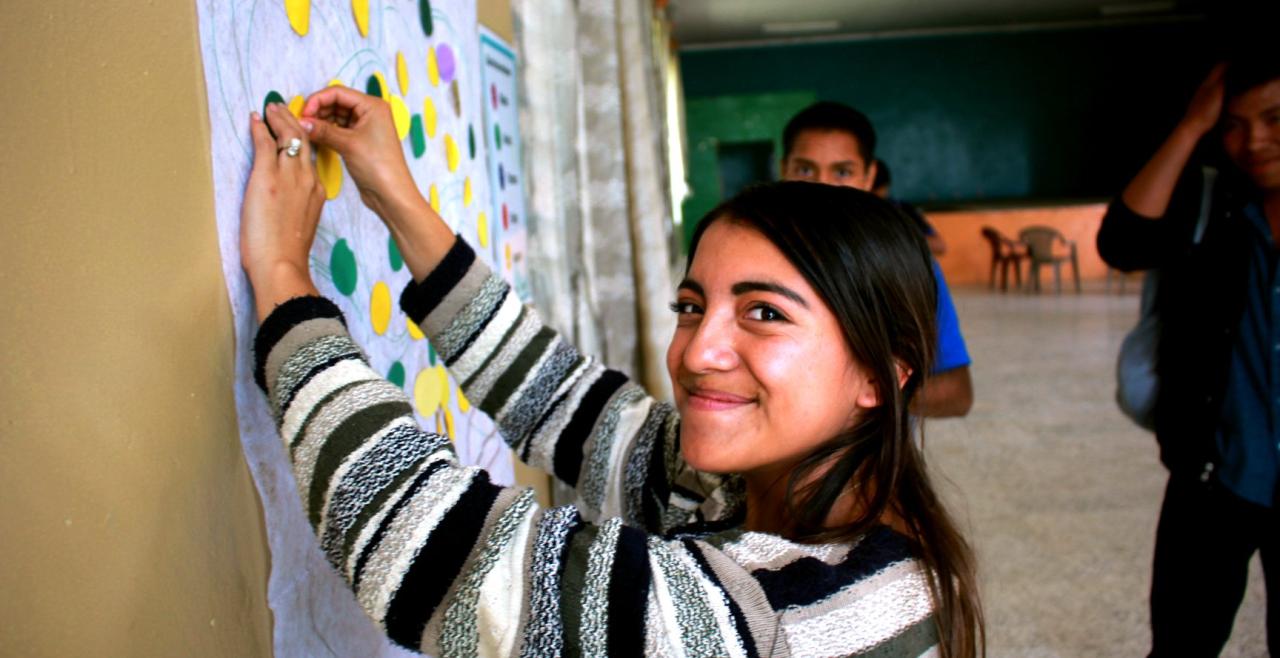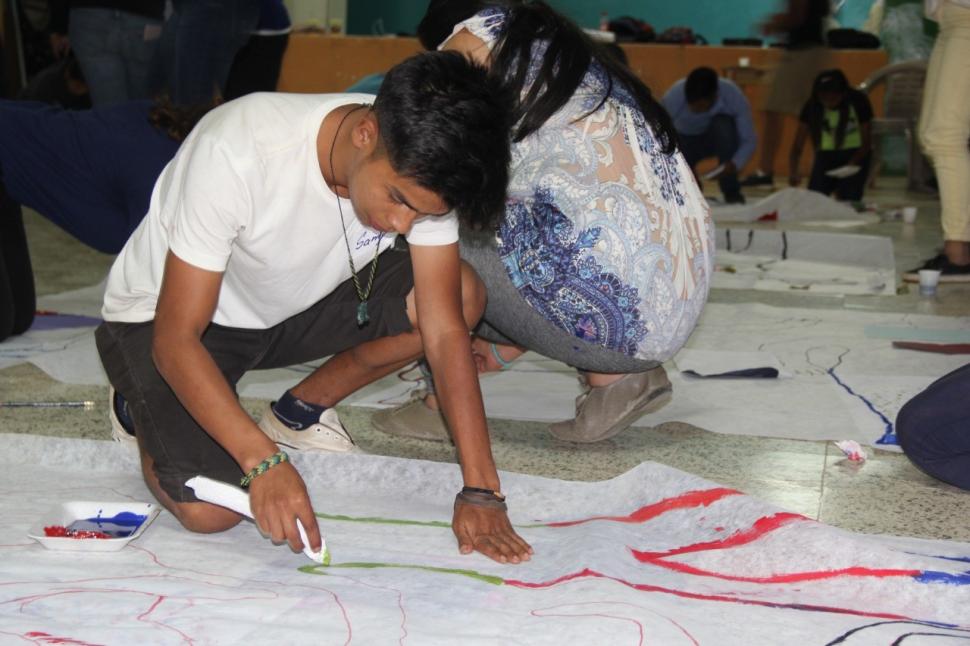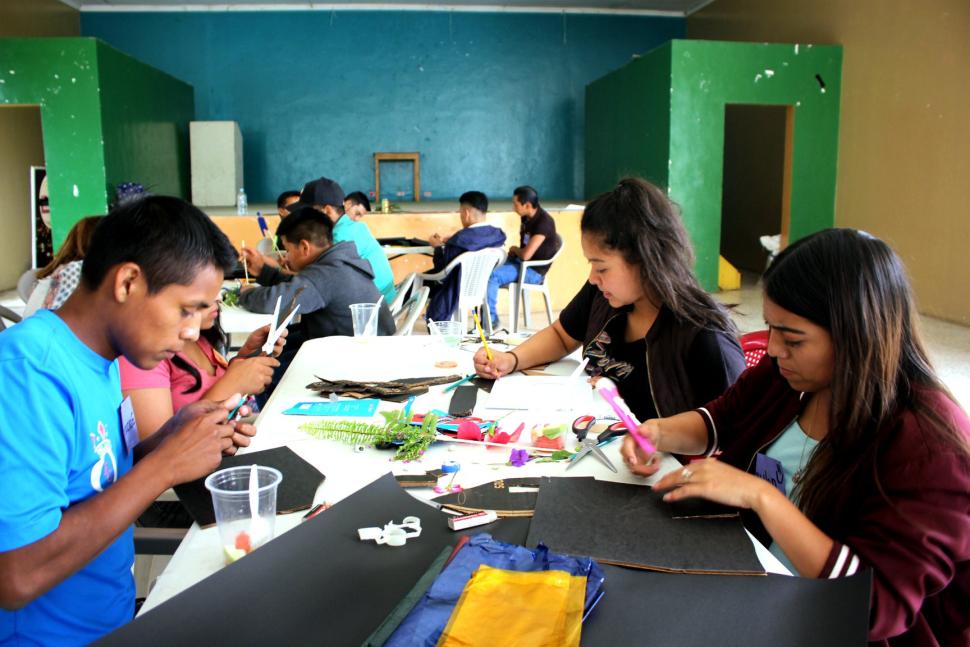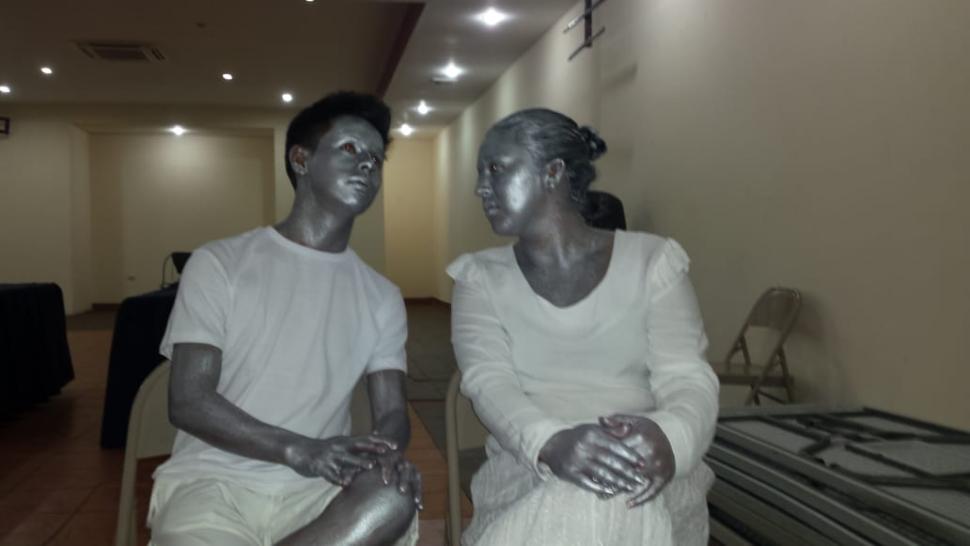Challenging gender norms through art

INTIBUCA, Honduras - Samuel, 18, is a social change activist in Intibucà, a city in the western highlands of Honduras. Passionate about human rights, he is volunteering with a local association to end violence against women in his community through art.
“As far as I can remember, I have always been involved in social movements and human rights activities,” said Samuel.
“As far as I can remember, I have always been involved in social movements and human rights activities.” - Samuel, 18.
He volunteers at Women in the Arts, a Spotlight Initiative-supported association that uses creativity to engage young people to challenge gender stereotypes that perpetuate violence. Through workshops, Women in the Arts employs drama and art illustration to make young people reflect on social norms and suggest solutions to break the cycle of violence in their communities.
“We now question the physical punishment and patriarchal beliefs that we all grew up with,” said Samuel. “These social norms contribute to sexual and domestic violence, and even femicide.”
Honduras is home to very high rates of violence against women. In a 2016 survey on public perception of insecurity, 93 per cent of the respondents stated that violence against women and girls was a very serious issue in the country. Spotlight Initiative’s programmes are working on changing long-held narratives around masculinity, gender roles and power relations between men and women.
“These social norms contribute to sexual and domestic violence, and even femicide.”
“Building a gender-equal society will require all of us to rethink our beliefs and attitudes,” said Samuel. “I hope my art and actions can contribute to us realizing a society where men and women can participate equally and lead exciting and fulfilling lives.”
Samuel is one of an estimated 15,000 teenagers who will benefit from similar Spotlight Initiative-funded interventions over the next three years in Honduras. The majority of the Initiative’s investment (26 per cent) is focused on preventing violence. The Initiative is also building the capactiy of local stakeholders to reach young people and populations facing multiple and intersecting forms of discrimination.



